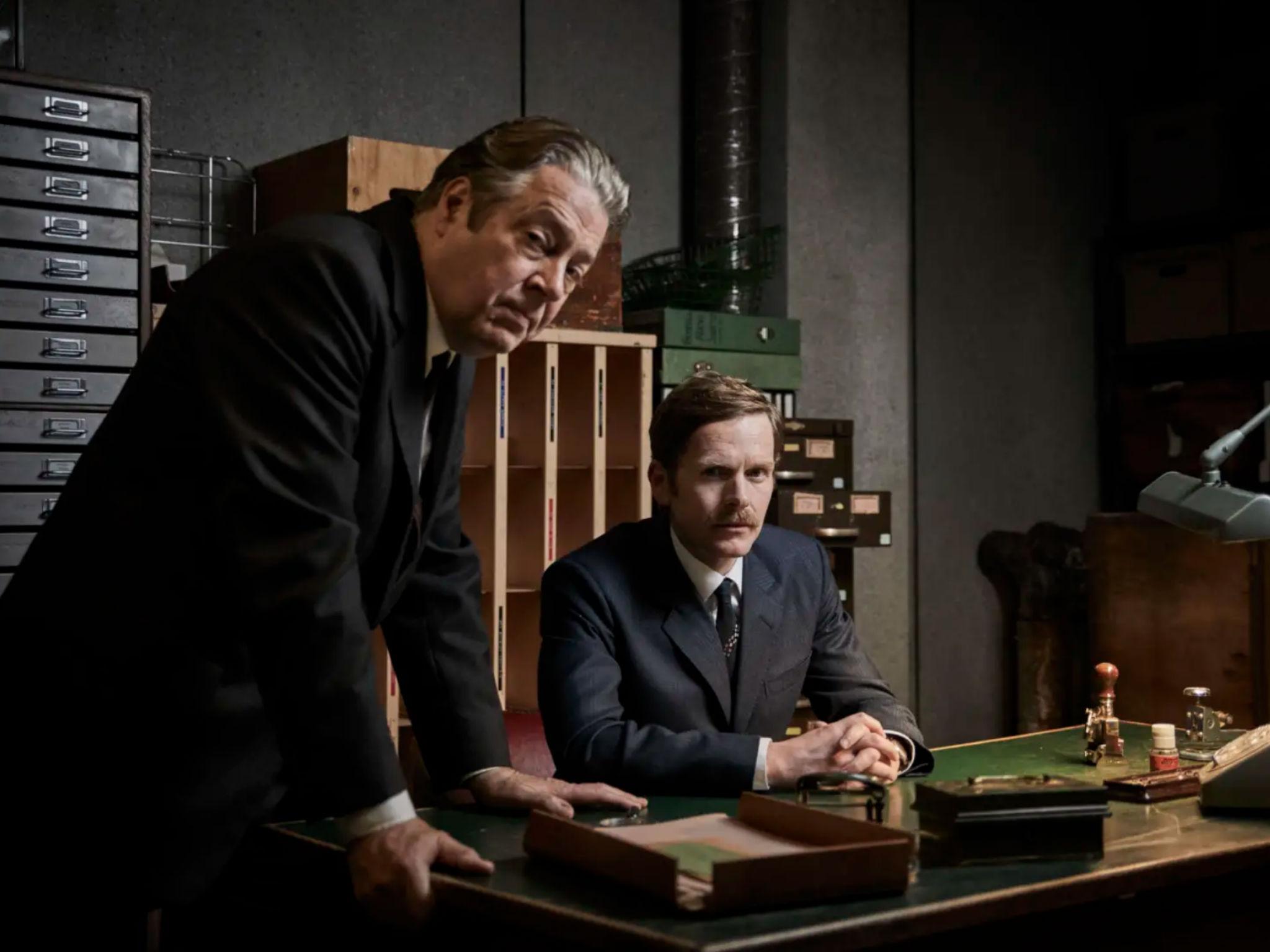Endeavour, series 6, episode 1, review: An enjoyable return to 1969 looks the part but doesn’t convince
Great acting and unlikely plot developments colour the opening episode of the ITV drama’s sixth series

Your support helps us to tell the story
From reproductive rights to climate change to Big Tech, The Independent is on the ground when the story is developing. Whether it's investigating the financials of Elon Musk's pro-Trump PAC or producing our latest documentary, 'The A Word', which shines a light on the American women fighting for reproductive rights, we know how important it is to parse out the facts from the messaging.
At such a critical moment in US history, we need reporters on the ground. Your donation allows us to keep sending journalists to speak to both sides of the story.
The Independent is trusted by Americans across the entire political spectrum. And unlike many other quality news outlets, we choose not to lock Americans out of our reporting and analysis with paywalls. We believe quality journalism should be available to everyone, paid for by those who can afford it.
Your support makes all the difference.Some years ago, after the last series of the original Inspector Morse had been broadcast, there were newspaper stories about the famous Jaguar Mark 2 saloon that had been so prominently featured in the show.
Although its tasteful burgundy paintwork was still gleaming and its curvaceous lines were as classically attractive as ever, all was not well. It wouldn’t even pass an MOT, such was the rust on it and its mechanical fatigue. Had it not been for its provenance it might have gone for scrap.
Ungenerous as it may be, I was very much put in mind of the Morse car by the first episode of the new series of Endeavour (ITV), the prequel set, quite precisely, in 1969. Superficially, everything is as it should be… but there are doubts about the structural integrity of this sixth run of the reboot.
First, as they say on eBay ads for used Jags, the good bits.
The performances are all superb, with Roger Allam outstanding as the old time guv, DCI Fred Thursday, young Morse’s mentor/protector. With a pleasingly weathered patina, like the walnut and leather interior of an old Jag, Allam seems almost obscenely comfortable in the part, just about bearing up under the modest moral compromises he finds himself having to make in the bent, masonic violent world of antique police work.
Allam also has to cope with some clumsy lines (“you get caught with your tit in the wringer on this one and I won’t be able to help you”) but there is no one, but no one, on God’s green earth who can do that expression of withering contempt like Allam. He is glorious to watch, as ever.
Shaun Evans, too, gives us an excellently nuanced show as the younger Morse, adopting hints of some of the elder Morse’s little ticks and mannerisms, in a miniature homage to John Thaw. Looking older than his years, Anton Lesser is very sweet as Reginald Bright, the patronised but professional old-fashioned chief superintendent in charge of the traffic division. As a counterpoint, we have the blatantly corrupt DCI Ronnie Box, who thinks nothing of fitting up crimes and who sees his task as ending when he “gets them up the steps” to the Crown Court (though DCI Thursday has to point out to him the existence of something called a defence barrister).
Endeavour has to go up against the BBC’s Call the Midwife, which is, coincidentally, set in roughly the same era. In terms of meticulous attention to period detail, there isn’t much to choose between them in the battle of the props. The Ford Zodiacs, beehive hairdos, tangerine decors, sideburns and trilbies are all present and correct. Endeavour, though, has the edge, because of DCI Thursday’s elaborate procedure for cleaning out his pipe. (This was a sort of primitive device that was used to ingest nicotine before the invention of vaping, by the way.)
For sounding good, Endeavour definitely has the better of it, and you can’t go far wrong by playing Beethoven, Barrington Pheloung and Martin Slater’s moving themes across panning shots of Saxon parish churches.
Oxford is a peculiarly telegenic place, all that sandstone lending it that golden, cosy, warm atmosphere so ideal for Sunday evening comfort viewing. Its quads and lanes provide ample opportunities to wander around thoughtfully, or, this being the Sixties, to rough some felon up across the bonnet of a Triumph 2000 saloon just outside Merton College.
But poke around the underside of the show with a screwdriver, however, and things are a bit flaky. The crime is classic – missing schoolgirls, one found dead. The suspects – a junkie, a don, a bus driver – all range in and out of the guilt zone as the clues and the evidence accumulate. Sergeant Endeavour Morse is convincingly sharp in his detective work, and it keeps the audience engaged. I can believe that the early 20th-century Degas figure he spots in a supposed Victorian photograph means that the picture has to be a fake, and, indeed, features one of the abducted girls as a model.
Yet it’s impossible to believe that an Oxford academic living out some sort of Lewis Carroll fantasy could pass off an abducted schoolgirl as his own daughter, or that she would go along with it quite as meekly as she does.
So, at the end of a long (two-hour) journey, the suspension, so to speak, finally packs up. It needs welding.
Join our commenting forum
Join thought-provoking conversations, follow other Independent readers and see their replies
Comments